
You are reading:

You are reading:
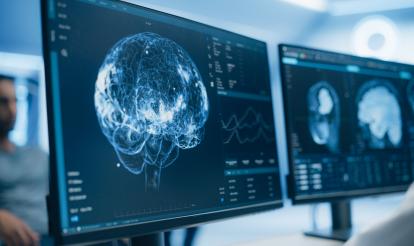
02.10.25
8 minutes readSend your questions to:
Corporate Head of the Department of Psychiatry and Clinical Psychology
at the Quirónsalud group of hospitals integrated into the Madrid Health Service
(Sermas)
Lead
researcher of the Microbiome Research Group at the Department of Medicine and
Life Sciences at the UPF
Mental health has become one of the major healthcare challenges of the 21st century, with a growing impact on people of all ages, genders and social backgrounds, a trend only accelerated by the COVID-19 pandemic. Traditionally pushed to the sidelines, mental health is now beginning to take centre stage in both healthcare and social agendas. In response to this reality, the ”la Caixa” Foundation reaffirms its commitment to research as a key tool for improving the diagnosis and treatment of these conditions.
Mental health problems are considered one of this century’s epidemics, and the figures continue to rise. In Spain, one in three people suffers from some form of mental health problem, a proportion that reaches 40% among those over 50 and half of those over 85. This is reflected in the 2023 Annual Report of the National Health System, published by the Spanish Ministry of Health, which highlights anxiety, sleep-related disorders and depression as the most common conditions. Specifically, anxiety disorders affect 10% of the population, with women (14%) being twice as likely to be affected as men (7%).
The prevalence of these disorders has been on the rise since 2016 and has worsened since the COVID-19 pandemic, particularly among younger people. For this reason, and with the aim of raising public awareness, combating stigma and promoting prevention initiatives, World Mental Health Day is observed every year on 10 October.
In the current social and healthcare context, the increase in mental disorders makes it more important than ever to highlight the role of scientific research. Research is essential for understanding the causes, identifying risk and protective factors, and improving diagnosis and treatment. It also helps to shed light on the complexity of mental health, challenge stigma and provide answers, thereby contributing to improving the quality of life of those affected.
Suicide is one of the three leading causes of death worldwide, accounting for more than one million fatalities each year. In 90% of cases, the individual was suffering from some type of mental illness, according to the Spanish Confederation of Associations of Families and People with Mental Illness.
In Europe, suicide is one of the leading causes of death among people under the age of 35, and worldwide it is already the second leading cause of death among those aged 15 to 29. A significant proportion of individuals who attempt suicide unsuccessfully will try again within the following year.
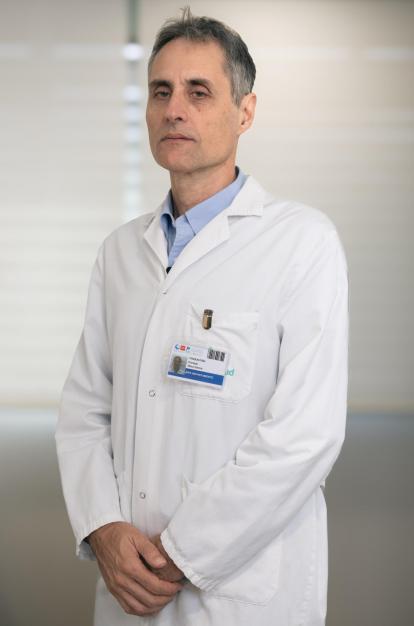
For this reason, evidence-based interventions could help prevent many of these deaths. That is precisely the aim of a project supported by the 2023 CaixaResearch Health Call and led by Dr Enrique Baca-García, Corporate Head of the Department of Psychiatry and Clinical Psychology at the Quirónsalud Group hospitals integrated into the Madrid Regional Health Service (Sermas).
As this expert explains, “always with the consent of the patient and their family, we use mobile phones to assess the effectiveness of combining different sources of information in order to prevent suicide attempts and to define the profile of patients who reattempt.”
Today, mobile phones make it possible to ask people at risk of suicide how they are feeling at any given moment and what environment they are in. In addition, the technology allows the use of sensors built into the phone to record the behaviour of people at risk. “The algorithm analyses the data to identify behaviour patterns, such as sleep schedules, work routines and physical activity. When significant deviations are detected, the system raises an alert about drastic changes in habits, such as sleeping less or going out more,” he adds. In addition, a safety plan has been developed that provides strategies to prevent suicidal thoughts or behaviours.
The study currently under way involves seven Spanish hospitals across four different autonomous communities. “These hospitals serve a catchment area that covers between 5% and 10% of the Spanish population, ensuring a representative sample and a sample size of between 1,200 and 1,800 participants,” notes García-Baca.
Compared with more traditional evaluation methods, real-time monitoring offers numerous advantages. “We’ve found that with these tools it’s easier to detect changes in a patient’s behaviour and intervene accordingly. It’s also important to bear in mind that these individuals often struggle to recognise their own symptoms.”
The preliminary results of this work give researchers and clinicians reason for optimism. “In just three months, we’ve managed to halve the number of suicide attempts, which is a very promising figure. We’ll see whether these excellent results are sustained in the medium and long term, and whether we can achieve an overall reduction in deaths of 75%,” explains Baca-García.
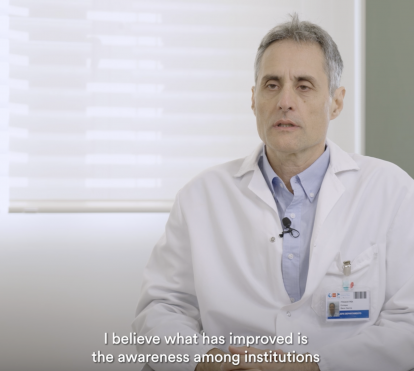
Depression is a mental health problem that affects more than 300 million people worldwide, 65% of whom relapse after treatment.
As João Filipe Oliveira, a researcher at the Life and Health Sciences Research Institute, University of Minho (Portugal), explains: “At present, we have very few new pharmacological innovations for depression. In many cases, treatments are not effective and, in fact, for 20% to 30% of patients we cannot find any combination that works. That’s why it remains such a prevalent illness, compounded by the fact that we still know little about the mechanisms underlying it.”
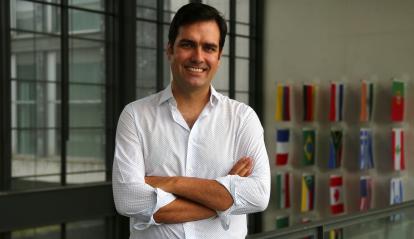
Although the complete neurological basis of depression remains unknown, the disorder is correlated with alterations in neuronal function within the limbic system and cortical regions of the brain. In this regard, a team of scientists supported by the 2021 CaixaResearch Health Call and led by Dr Oliveira is currently working to understand the origins of this disorder and thereby identify new therapeutic targets.
In situations of chronic stress, astrocytes – glial cells in the brain – respond to excessive amounts of glutamate, which appear to mediate the overstimulation of neurons and trigger symptoms. According to the researcher, “one of the causes of depression is the persistence of the effects of chronic stress in a person’s life. It’s not the only cause, but it is one of them. That’s why we chose to use these stress models to address the questions around this illness.”
The researchers have discovered that astrocytes play a key role in the progression of depressive symptoms. “We’ve found that when we silence specific functions of astrocytes, mice show resistance to developing the condition,” says Oliveira.
He adds, “It’s very surprising that, simply by manipulating this type of cell without directly touching the neurons, we’re able to induce changes in the progression of the illness. Therefore, if we were to alter astrocyte activity we could potentially change the way the disease progresses. We’re very hopeful about developing new therapeutic possibilities in the future.”

In the race to find new treatments for mental illnesses, the study of the gut microbiota has gained significant importance in recent years. This refers to the community of micro-organisms that live in our intestines and which are opening up a new horizon of understanding regarding the connection between the microbiota and brain.
Aware of the importance of advancing in this field, in 2024 the ”la Caixa” Foundation awarded a Postdoctoral Junior Leader fellowship to Dr Mireia Vallès-Colomer, principal investigator of a team exploring this connection within the Microbiome Research Group at Universitat Pompeu Fabra.
As the expert explains, “on the one hand, we’re researching the microbial metabolism of neuroactive compounds, and we’re also trying to go a step further by exploring how the microbiota is transmitted within the population. We know that during the early years of life we acquire the first members of our microbiome from our mothers, but later this transmission is complemented by that of other individuals who are close to us. Additionally, there is also transmission from the pets we have at home.”
Recent studies have revealed characteristic variations in the gut microbiome of individuals with depression, in which some of the bacteria involved produce metabolites such as glutamate, butyrate, serotonin and gamma-aminobutyric acid (GABA), substances with a powerful neurological effect. “We know that people with depression have a lower abundance of butyrate-producing bacteria, so with an intervention they could improve, but we still don’t know on an individual level whether this will work for all patients,” explains Mireia Vallès.
According to the doctor, as research in this field advances, it may be possible in the future to develop psychiatric treatments based on modulation of the microbiome. “The ultimate goal of these studies would be to identify biomarkers to improve the diagnosis and treatment of mental illnesses such as depression,” she concludes.
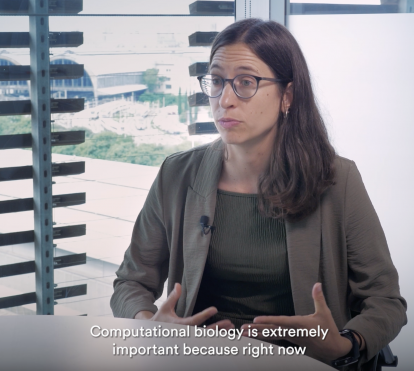
Scientific research has become an essential pillar in addressing the major challenges of mental health. From suicide prevention to the search for new therapeutic targets against depression and exploring the links between the gut microbiota and mental disorders, these projects are opening up promising avenues that only a few years ago seemed out of reach.
At the same time, understanding how biological factors intertwine with social determinants is crucial for designing truly effective interventions. This will be the focus of the next CaixaResearch debate, “Mental health: The great unfinished business”, to be held on 22 October at 7 p.m., with the participation of Dr Enrique Baca-García and other specialists.
What seems beyond dispute is that caring for mental health requires resources, commitment and innovation. And science holds the key: it is the strongest path to transforming the future and giving millions of people the chance to live fuller, more meaningful lives.